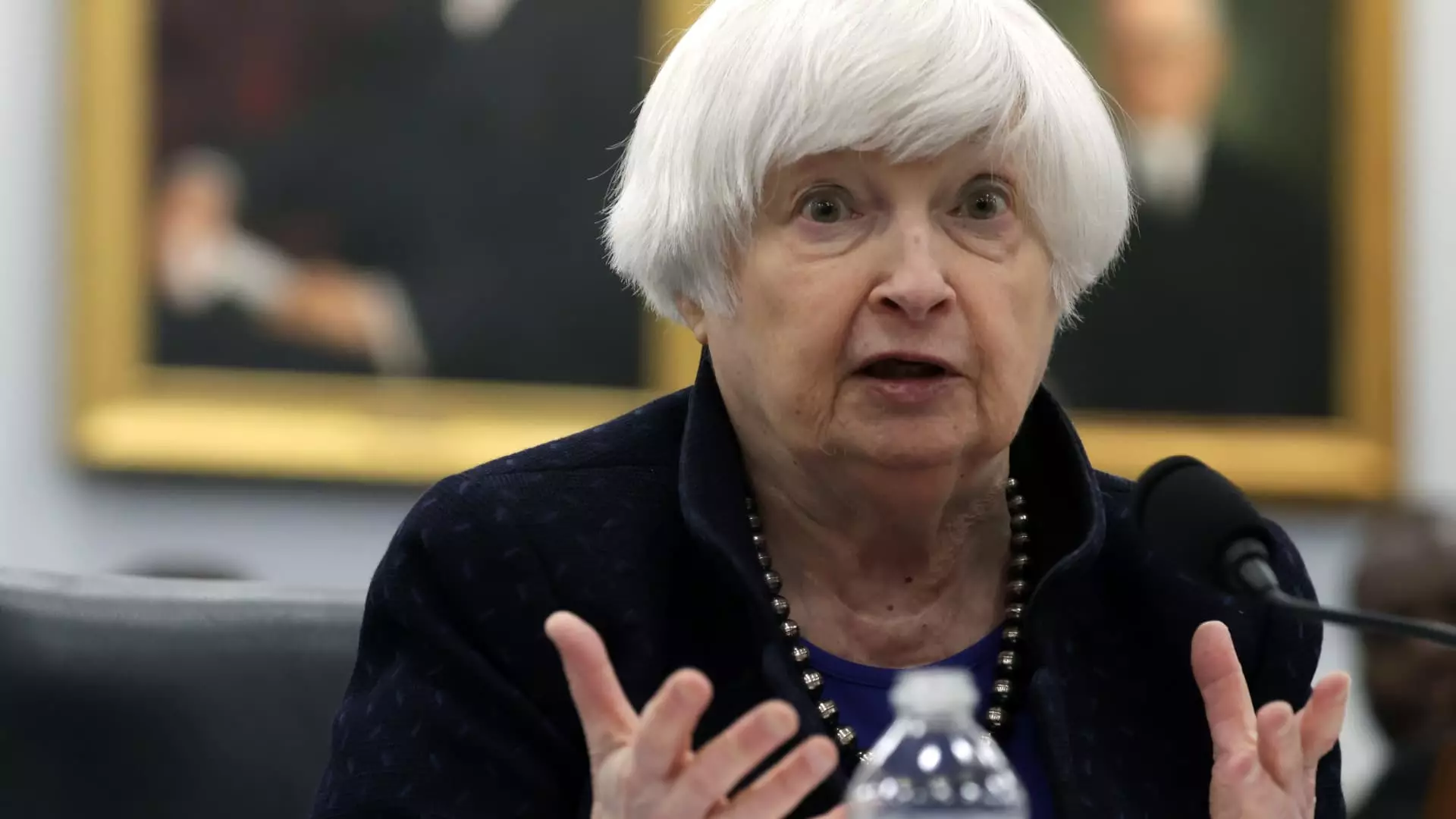Treasury Secretary Janet Yellen recently expressed concerns about China’s approach to the global economy, specifically regarding the export of its surplus clean energy products. Yellen highlighted the fact that China’s excess capacity in solar power, electric vehicles, and lithium-ion batteries has led to a situation where these products are being sold at lower prices in international markets. This, in turn, has had a detrimental effect on the competitiveness of green manufacturing industries in the U.S. and around the world.
Yellen emphasized that China’s overcapacity problem is not merely an isolated issue but has broader implications for global market prices and production patterns. The artificially low prices of Chinese clean energy products disrupt the natural equilibrium of supply and demand, creating distortions that adversely affect American firms and workers. This, in turn, undermines the efforts of countries like the U.S. to develop their own clean energy industries and achieve energy transition goals.
Pressure on Chinese Officials
In response to these challenges, Yellen stated her intention to address the issue of China’s trade practices during her upcoming visit to the country. She underscored the importance of engaging with Chinese officials to urge them to take necessary steps to rectify the situation and ensure a fair playing field for all market participants. Yellen’s proactive approach highlights the significance of addressing trade imbalances and promoting a more equitable global economic environment.
Yellen’s remarks come at a time when the U.S. is ramping up its investments in clean energy through legislative measures like the 2022 Inflation Reduction Act and the CHIPS and Science Act. While these initiatives aim to bolster the domestic clean energy industry, they face stiff competition from China, which has been investing substantially in clean energy for years. The disparity in investment levels between the two countries underscores the need for concerted efforts to level the playing field and ensure fair competition in the global clean energy market.
Yellen’s concerns about China’s clean energy exports reflect broader trade tensions between the U.S. and China, as both countries navigate complex geopolitical dynamics. The recent meeting between President Joe Biden and Chinese President Xi Jinping was seen as an attempt to thaw relations, but underlying issues like cybersecurity and trade continue to pose challenges. President Biden’s scrutiny of Chinese smart cars and concerns about national security risks further underscore the delicate balance between economic competition and strategic interests in the U.S.-China relationship.
The impact of China’s clean energy exports on the global economy is a complex and multifaceted issue that requires careful consideration and strategic responses. By addressing the challenges posed by China’s overcapacity and unfair trade practices, countries like the U.S. can work towards creating a more sustainable and equitable global economic environment for all stakeholders.

Leave a Reply